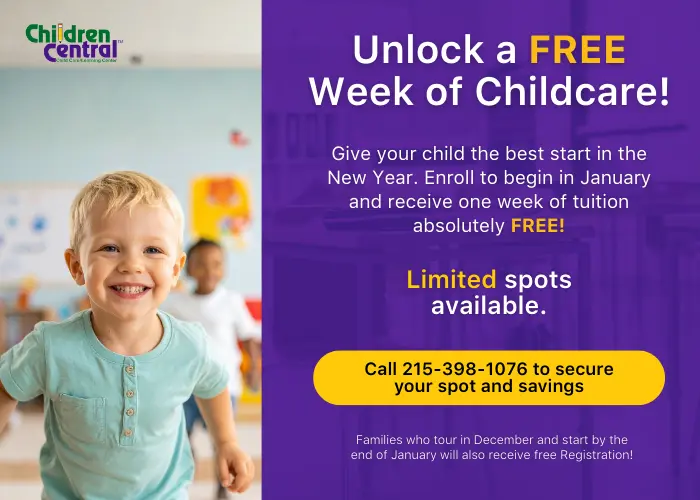Children Central Twaddlers Academic center provides educational fun and growth for toddlers ages 30-36 months (2.5 to 3 years old) in the Yardley/Langhorne communities.
Welcome to Twaddlers Academic Center, where we provide a stimulating and supportive learning environment for children. Discover how we empower students with a strong educational foundation.
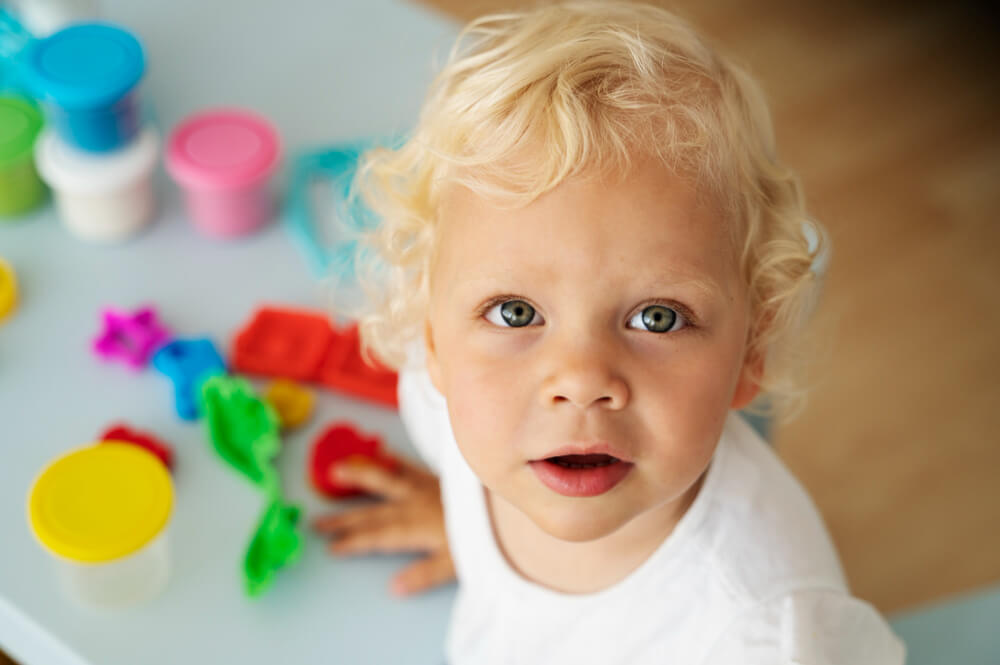
Explore art designed for toddler development, engaging all five senses that fosters creativity and emotions
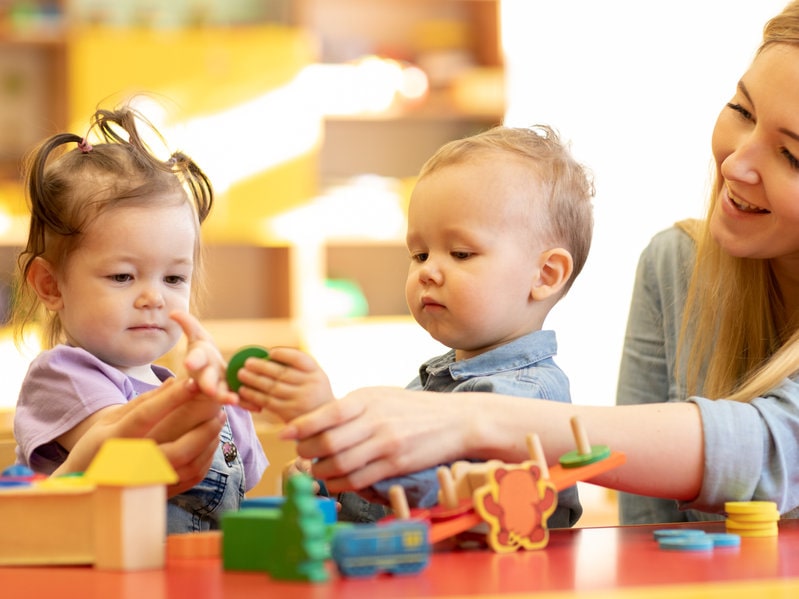
Activities here teach young toddlers to organize their thoughts, building critical thinking abilities.
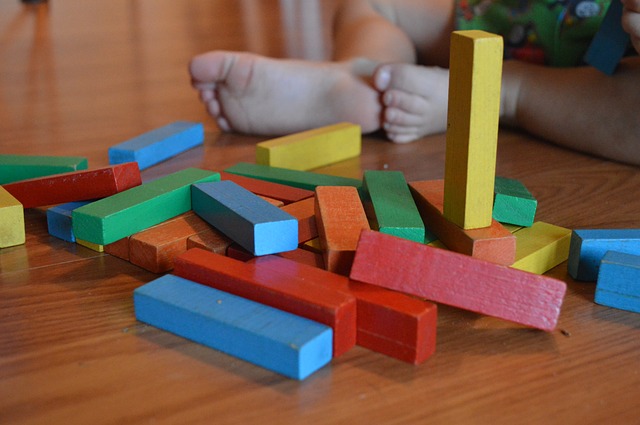
Learn new words, math concepts, problem-solving, and building blocks that promotes imaginative play.
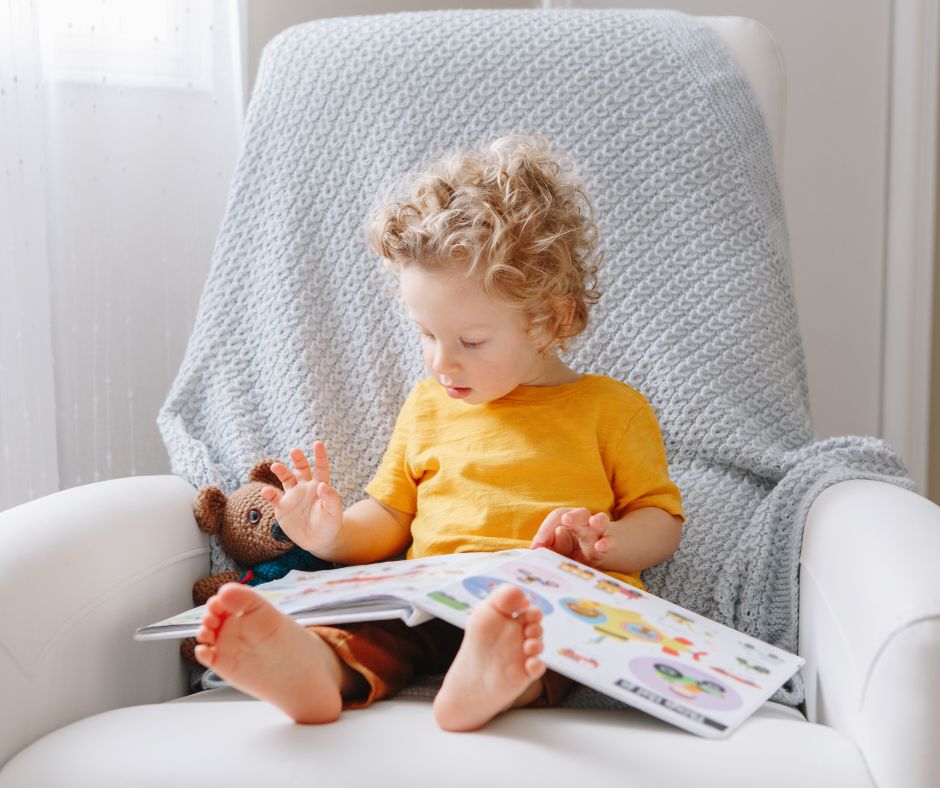
Reading aloud, nursery rhymes, puppets, and more instill early reading skills.

Whether inside or out, toddlers move their bodies to music and play. This boosts coordination, listening, and fun.
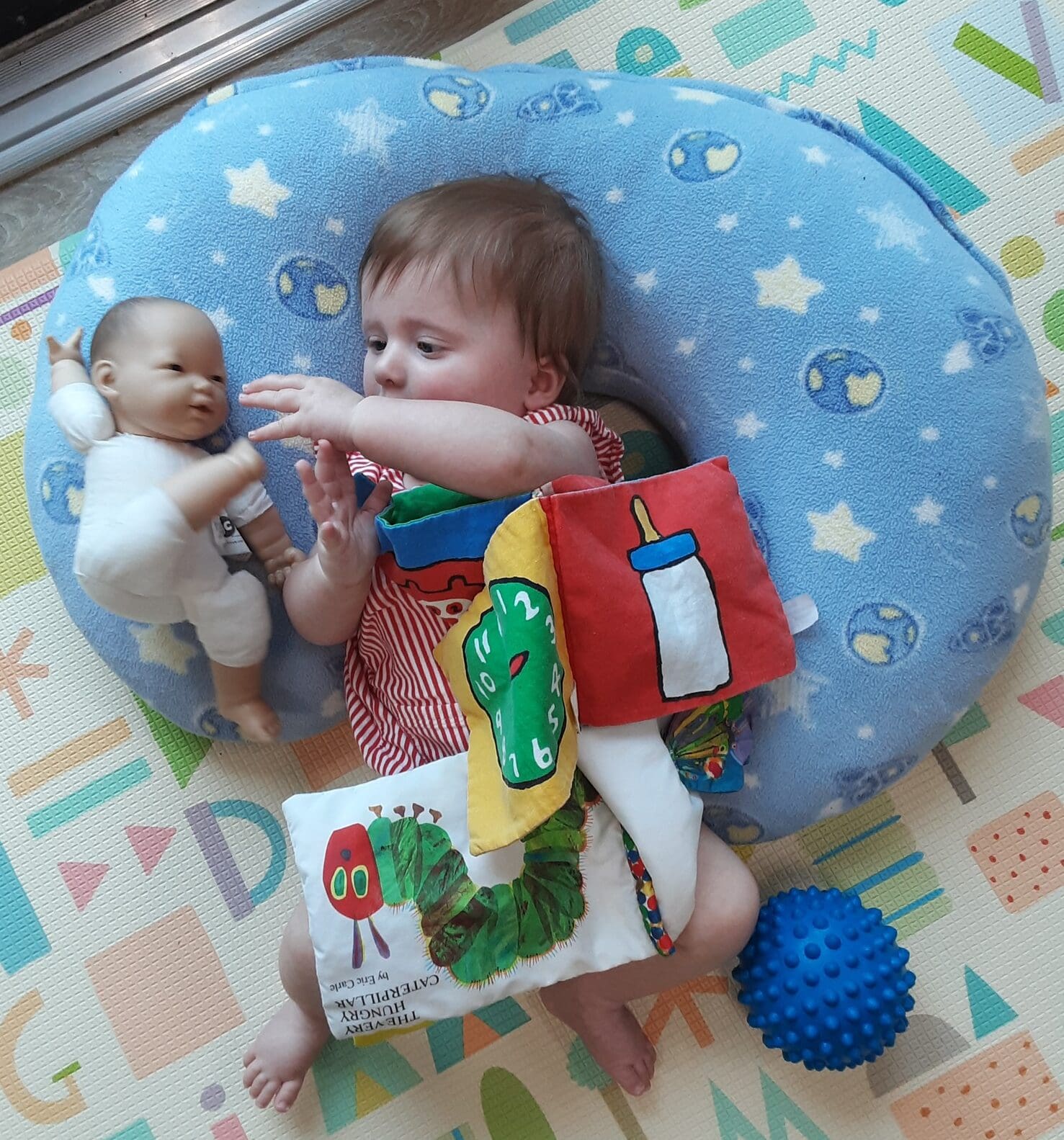
Our experienced teachers work with parents for potty training consistency. Once trained and age 3, toddlers graduate to Preschool.
Here’s a breakdown of programs & activities your twaddler will experience daily with Children Central:
Greeting Children / Learning Centers Open: The day starts with welcoming the children, and the learning centers are made available for various educational activities.
Library: Time for reading and literacy activities. Children can explore books and engage in storytelling.
Blocks: Playtime with building blocks, promoting creativity and spatial skills.
Sensory: Activities that stimulate the senses, such as touch, smell, and sight. It can include sensory bins and experiments.
Morning Snack: Another snack break to keep children nourished.
Morning Exercise: Engaging in physical activities to start the day energetically.
Art: Creative art projects that encourage self-expression and fine motor skills development.
Small Manipulatives: Hands-on activities with small objects to enhance fine motor skills.
Home Life Lessons: Lessons related to daily life skills and routines.
Quiet Time: A period of rest or relaxation, which may include naptime or quiet activities.
Wake-Up (Diaper Changing) (Bathroom): Assisting children with waking up, changing diapers, and bathroom breaks.
Getting Ready for Lunch: Preparing for the lunchtime routine.
Lunch: Providing a balanced and healthy meal for the children.
Afternoon Snack: Providing a nutritious snack for the children.
Outside Time: Outdoor playtime for fresh air and physical activity.
Ball Catching: A game involving catching balls, which promotes hand-eye coordination.
Playing: Unstructured playtime for children to socialize and explore.
Climbing: Activities that involve climbing structures, enhancing gross motor skills.
Dramatic Play: Imaginative role-playing activities that encourage creativity.
Outside Time: More outdoor playtime for fun and exercise.
Ball Throwing: Activities involving throwing balls, improving coordination and strength.
Hoop Hopping: Using hula hoops for various physical activities and games.
Obstacle Course: Setting up challenges and obstacles to promote problem-solving and physical activity.
Music Activities: Engaging in musical activities, which can include singing and instrument play.
Movement: Physical activities that encourage coordination and gross motor skills.
Singing: Group singing activities for entertainment and learning.
Fingerplays: Interactive rhymes and finger games that promote language development.
Experience Chart: A visual representation of the day’s activities and experiences.
Review of the Day: Reflecting on the day’s activities and what was learned.
Dismissal: The end of the day, when children are picked up by their parents or guardians.
Our schedule provides a well-rounded day of education, play, and social interaction for your child at Children Central.
Twaddlers learning centers offer activities like art, sensory play, blocks, language development, math concepts, music, and movement. The activities are play-based and promote toddlers’ understanding of the world through exploration and their five senses.
Contact Children Central Twaddlers Academic Center today!
Daycares for 3 year olds provide learning through play, social interaction, early literacy and math skills, and activities for developing independence and potty training readiness.
They have qualified teachers, low teacher-student ratios, an age-appropriate curriculum, nutritious meals, and safety. Search “daycare for 3-year-old near me” to learn more.
Contact Children Central Twaddlers Academic Center today to enroll today!
Twaddlers learning centers use early childhood education principles to promote development through play-based activities. This includes art, sensory play, math, language, music, movement, pretend play, and more. The activities expose twaddlers to new concepts and vocabulary and build skills.
Contact Children Central Twaddlers Academic center for quality care.
Choosing a twaddler learning center near you allows for ease of transportation, involvement, and transitioning your toddler into the daycare. Proximity lets you visit, research local early childhood centers, ask questions, and determine the best fit for your child’s care and learning needs.
Contact Children Central Twaddlers Academic center for expert care for your child!
Twaddler academic programs focus on early childhood learning and development. We incorporate educational games, reading time, arts and crafts, and more into our daily curriculum.
Contact Children Central at (215) 398-1076 to enroll your child in our award-winning Twaddler program.
A Twaddlers academic center understands the crucial developmental milestones for young toddlers. Our teachers foster social-emotional growth, early literacy, cognitive thinking, motor skills, and more through thoughtful lesson plans tailored to 30 – 36 month olds. This head start equips them with skills for preschool and beyond.
Contact Children Central Twaddlers Academic Center at (215) 398-1076 to give your twaddler these benefits.
Our approach to teaching twaddlers focuses on building confidence, curiosity, communication skills, and problem-solving abilities through play. We create a safe, nurturing environment to support the unique needs of 30- 36 month olds. Call Children Central Twaddlers Academic Center at (215) 398-1076 to enroll your child.
Twaddler learning centers feature engaging classroom environments designed specifically for 30 -36-month-olds. Children learn through educational toys, social interactions, sensory activities, and more.
Call Children Central Twaddlers Academic Center at (215) 398-1076 today to schedule a tour.
